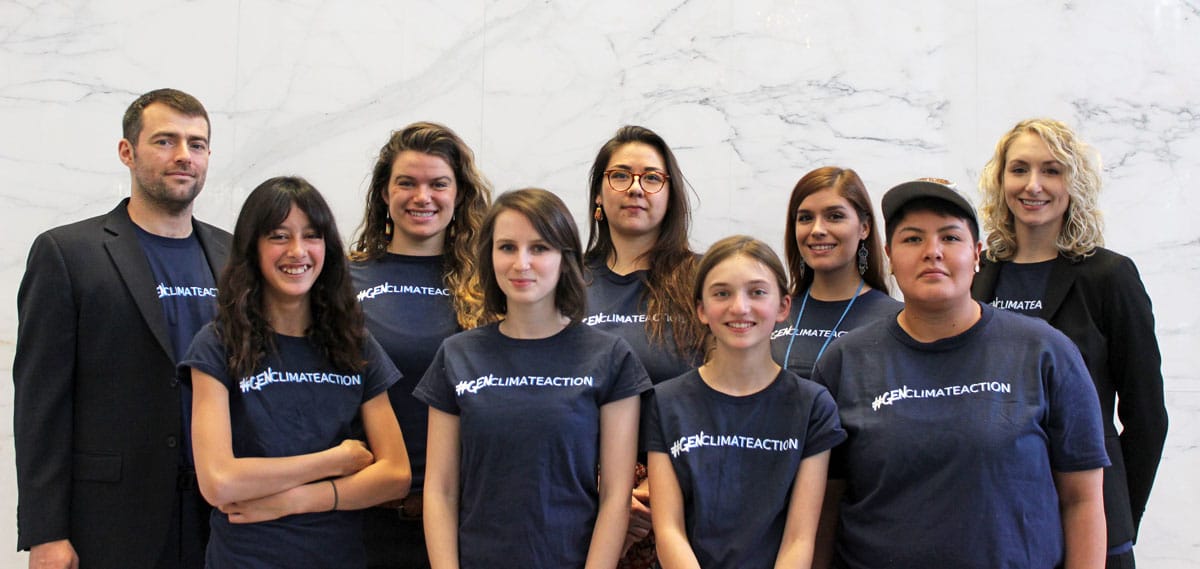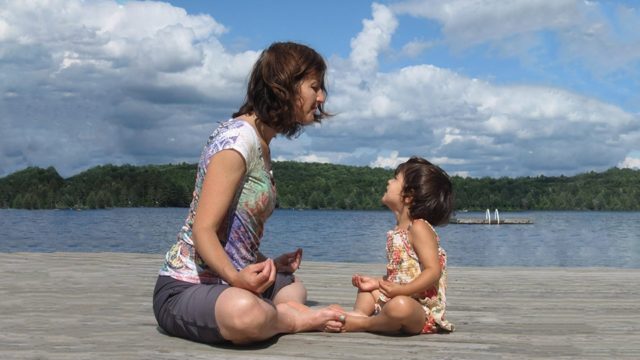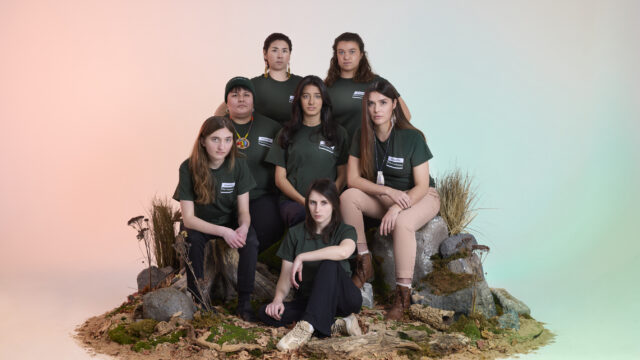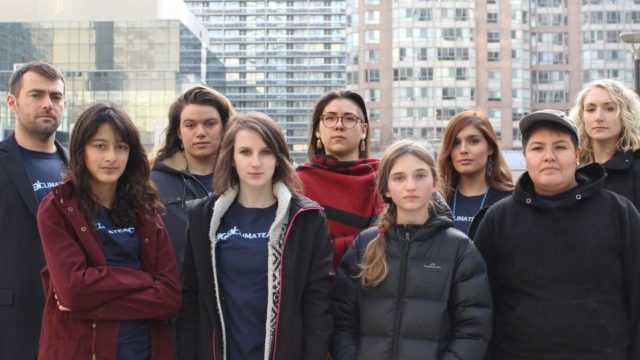Seven young Ontarians have burst through major barriers in the legal fight for a safer climate future.
Between November and March, the youth-led climate lawsuit Mathur et. al. v. Her Majesty in Right of Ontario overcame several procedural hurdles. It first prevailed over the Government of Ontario’s motion to strike the case outright, then scored another win when Ontario’s attempt seek leave to appeal the decision allowing the lawsuit to proceed was dismissed.
Mathur et. al. has now progressed further in the courts than any other rights-based climate lawsuit in Canada.
These back-to-back victories have also set the lawsuit’s seven applicants, Alex, Beze, Madi, Shaelyn, Shelby, Sophia and Zoe, on the path toward a full hearing on the merits of their case, which argues the province violated Ontarians’ rights under the Charter of Rights and Freedoms to life, liberty and security of the person when it weakened its greenhouse gas emissions reduction targets in 2018.
As this remarkable group of seven, represented by lawyers from Ecojustice and Stockwoods LLP, prepare for the next phase of litigation, here are four ways their case is already changing the Canadian legal landscape.
It established the courts are a viable avenue for citizens to challenge government actions that threaten their Charter rights and the climate.
The youth applicants allege the Ontario government violated their Section 7 rights when it passed the Cap and Trade Cancellation Act in 2018, eliminating the province’s existing emissions targets and replacing them with a far weaker 2030 target.
The government filed a motion to strike in response, arguing the courts were not an appropriate forum to decide this issue – in other words, that the case was not justiciable.
This is an issue that has halted (at least temporarily) other rights-based climate lawsuits in Canada. But Justice Brown of the Ontario Superior Court of Justice found that Mathur et. al. is justiciable, at least in part, because it targets specific government action, i.e. passing the Cap and Trade Cancellation Act, scrapping existing climate targets and setting a new, inadequate one within its Made-in-Ontario Environment Plan.
It established that the harms from climate change are not speculative nor impossible to prove.
Ontario argued the impacts of climate change were unprovable and would happen so far in the future that trying to predict climate impacts today would be pure speculation. But, in a decision that could help prevent attempts by government actors seeking to strike similar cases, Justice Brown ruled it is “not plain and obvious that scientific evidence cannot be marshalled to establish that GHG emissions cause harm.”
Justice Brown went on to quote findings from the Ontario Court of Appeal’s decision in the Reference re: Greenhouse Gas Pollution Pricing Act, including that “uncontested evidence” before the court showed that climate change is causing or exacerbating extreme weather events, soil and water degradation, permafrost thawing, rising sea levels, ocean acidification, species loss and extinction and life-threatening vector-borne diseases.
It established that climate change can impact Canadians’ rights to life, liberty and security of the person.
Thanks to the Mathur et. al. case, for the first time in history, a Canadian court confirmed that the harms from climate change can threaten fundamental, Charter-protected rights.
In Justice Brown’s decision, the judge found the climate crisis could engage all three Section 7 rights to life, liberty, and security of the person.
As a result, for the first time in Canadian judicial history, government contributions to the climate crisis will be put on trial when Mathur et. al. proceeds to a full hearing.
It’s providing inspiration for further climate action – both inside and outside the courts.
The young people leading the Mathur et. al. case are all incredible examples of the courageous and novel ways youth are fighting for their climate future.
From organizing and joining school strikes for the climate to advocating for clean air in Ontario’s “Chemical Valley” and food sovereignty in the province’s north to working to implement the UN Sustainable Development Goals, these seven young people are tireless leaders.
There is little doubt their tenacity, advocacy and belief in a better world will spawn future climate action, both inside and outside the courts.
This article was originally published by The Lawyer’s Daily (thelawyersdaily.ca) a division of LexisNexis Canada.
It was written with contributions from Emily Chan, of the Ecojustice communications team.





